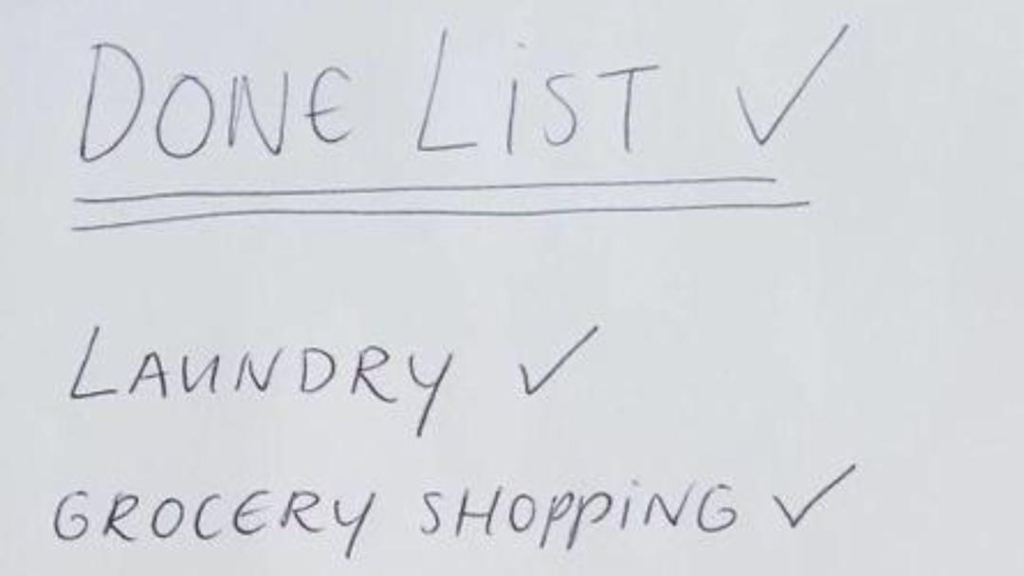Embarking on a journey to better health doesn’t have to be overwhelming. It can be a series of small, manageable changes that fit seamlessly into your daily life. In this guide, we’ll walk you through 11 simple steps to transform your health and well-being.

Source: Pinterest
These aren’t drastic diet plans or intense workout regimens. Instead, they’re practical, everyday habits that anyone can adopt. Whether you’re looking to improve your eating habits, manage stress better, or just feel more positive and energetic, these tips will help you on your journey.
Start Your Day with Gratitude
Begin each morning by taking a few moments to write down what you’re grateful for. This simple act can significantly improve your mood and outlook on life. Studies show that people who practice gratitude regularly tend to be happier and healthier. So, consider extending this practice to include a food journal.

Source: Pinterest
For the next 22 days, jot down everything you eat and drink. This will help you understand your eating patterns and make more mindful choices. Keeping a gratitude and food journal can transform your mornings into a time of reflection and growth.
Add Fruit to Your Breakfast
Incorporate fruit into your breakfast to boost its nutritional value. Whether you enjoy oatmeal, eggs, or yogurt, adding fruit can make your meal more delicious and nutritious. For instance, slice an apple and mix it into your oatmeal before cooking. Fuji apples are particularly sweet and flavorful.

Source: Pinterest
Alternatively, a cup of berries can enhance the taste and nutritional profile of your yogurt. If you often skip breakfast, try starting your day with a piece of fruit. It’s a simple way to kickstart your morning with vitamins and fiber.
Keep Healthy Foods in Stock
Keeping your kitchen stocked with healthy foods makes it easier to maintain a balanced diet. Fill your pantry and fridge with items like berries, baby carrots, apples, leafy greens, nuts, seeds, beans, sweet potatoes, quinoa, and fresh fish. Having these nutritious options readily available can help you make better food choices.

Source: Pinterest
You control what foods enter your home, so make smart shopping decisions. Preparing healthy snacks and meals becomes easier when you have the right ingredients on hand. This proactive approach is half the battle in maintaining a healthy lifestyle.
Watch Your Portion Sizes
Being mindful of portion sizes is crucial for managing your weight. You don’t need to measure every morsel, but awareness is key. For example, when pouring cereal, many people use three cups instead of the recommended one cup. This discrepancy can significantly impact your calorie intake.

Source: Pinterest
Research indicates that portion sizes today are up to five times larger than they were in the past. Portion control is a simple yet effective strategy for losing weight and keeping it off. By paying attention to how much you’re eating, you can better manage your diet.
Be Kind to Yourself
Instead of being hard on yourself for things you didn’t accomplish, practice self-compassion. Shift your focus from what you need to cut out of your diet to what you can add.

Source: Pinterest
Increasing your intake of fruits and vegetables is a positive and achievable goal. Being kinder to yourself reduces stress and promotes better mental health. Remember, it’s about progress, not perfection. Celebrate your small victories and keep moving forward with a gentle and encouraging mindset.
Include Protein in Every Meal
Protein is essential for stabilizing blood sugar levels and keeping you full. Make sure to include a good source of protein in each meal. Options include chicken, fish, lean meat, eggs, dairy, and nuts.

Source: Pinterest
Protein helps maintain muscle mass and supports various bodily functions. It also helps curb cravings and maintain energy levels throughout the day. By incorporating protein into every meal, you can improve your overall diet and feel more satisfied after eating.
Check Your Hunger
Before reaching for a snack, take a moment to assess your hunger. Count to ten and ask yourself if you’re truly hungry or if you’re eating out of boredom or stress. Tuning into your body’s hunger signals can help you eat more mindfully.

Source: Pinterest
If you’re not genuinely hungry, find another activity to distract yourself, like going for a walk or reading a book. Eating only when you’re truly hungry can prevent overeating and help you maintain a healthy weight.
Make a Ta-Da List
Instead of getting overwhelmed by a long to-do list, create a ta-da list of your accomplishments. Writing down what you’ve achieved, no matter how small, can boost your sense of pride and motivation. This positive reinforcement encourages you to keep going and builds your confidence.

Source: Pinterest
Focusing on what you’ve done rather than what you need to do can shift your mindset to one of gratitude and satisfaction. Celebrate your successes and use them as fuel for future accomplishments.
Create a Routine
Working from home can disrupt your usual structure, making it challenging to maintain healthy habits. To bring more order to your day, establish a routine for your meals and exercise. Plan when, what, and how much you will eat, and set specific times for physical activity.

Source: Pinterest
Sticking to this schedule as closely as possible can help you stay on track with your health goals. A consistent routine reduces stress and helps you make healthier choices. Structure your day to include time for self-care and wellness activities.
Roast Your Veggies
Roasting vegetables is a delicious and healthy alternative to steaming them. Roasted veggies are flavorful and satisfying, making it easier to include them in your diet. Try roasting broccoli, cauliflower, onions, red peppers, and zucchini.

Source: Pinterest
You can also roast sweet potatoes and butternut squash for a filling and nutritious side dish. Lastly, use a minimal amount of oil to keep the calorie count low.
Breathe Deeply
Deep breathing is essential for optimal health, especially when you’re feeling anxious. Shallow breathing can limit oxygen intake and increase stress. Practice deep breathing by inhaling for four counts, holding for four seconds, and exhaling for four counts. Repeat this a few times to calm your mind and body.

Source: Pinterest
Deep breathing can improve your overall health and is a great addition to yoga or meditation practices. So, make deep breathing a regular part of your routine to enhance your well-being.